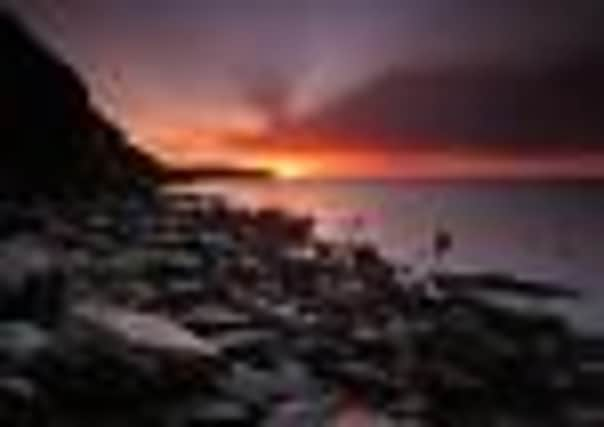Island of the week: Orkney


Location: Orkney is an archipelago in the North Sea, six miles off the north east tip of the Scottish mainland, consisting of 70 islands, 20 of which are inhabited.
Population: 20,000
Meaning: The name Orkney – or Arcaibh in Scottish Gaelic – is derived from the name given to the group of Islands by Pytheas of Massilia sometime between 322 and 285 BC, when he referred to it as Orcas. In the 1st century AD, the Roman geographer Pomponius Mela called the islands Orcades. ‘Orc’ is a Pictish tribal name meaning ‘young boar’ and the Old Irish name for the islands was Insi Orc, meaning ‘island of the pigs’.
Advertisement
Hide AdAdvertisement
Hide AdUpon the arrival of Norwegian settlers in the late 9th century, the prefix ‘orc’ was re-interpreted as being connected to the Old Norse ‘orkn’, meaning ‘seal’, with the added suffix of ‘ey’ meaning ‘island’.
History: The islands have been inhabited for at least 8,500 years. Occupied by Mesolithic and Neolithic tribes, and then by the Picts, Orkney contains some of the oldest Neolithic sites in Europe and the Heart of Neolithic Orkney is a designated UNESCO World Heritage Site, with the village of Skara Brae, inhabited from a round 3100 BC, considered the best-preserved on the continent.
Orkney was invaded by Norway in 875, and then annexed to the Scottish Crown in 1472, following Norway’s failure to pay a dowry for James III’s bride Margaret of Denmark. Although the islands have been a part of Scotland for more than five centuries, most Orcadians still regard themselves as Orcadians first and Scots second. In Orkney, the term “the mainland” refers not to the Scottish mainland, but to the largest of the Orkney isles. The accoutrements to Highland culture such as tartan, clans and bagpipes are not a part of Orkney’s culture.
The Royal Navy base at Scapa Flow, which closed in 1957, played a major part in both World Wars. After the Armistice in 1918 the German fleet was transferred there to await a decision on its future, and the German sailors opened the sea-cocks and scuttled all the ships. The remaining wrecks are now a favoured haunt of divers. The Italian Chapel, one of the islands’ main attractions, was built by Italian prisoners-of-war.
Famous Orcadians include poet Edwin Muir, who was a visiting professor of poetry at Harvard; writer George Mackay Brown, and, of course, Simpson’s firebrand Groundskeeper Willie.
What to do: The astonishingly well-preserved Neolithic village of Skara Brae, only fully-excavated in 1925 after a storm first unearthed its remains in 1850, is a must-see. Hidden for thousands of years by shifting sand, a network of houses, complete with stone cupboards, beds and cooking hearths, can now be explored.
A boat trip will introduce the visitor to some of the most famed Orkney inhabitants: seals, otters, porpoises, whales and dolphins, or if you’re more of a culture vulture than a wildlife-spotter, Kirkwall’s magnificent red sandstone St Magnus Cathedral, dates from 1137.
Advertisement
Hide AdAdvertisement
Hide AdThe beautifully ornate A-listed Italian Chapel at Lamb Holm is a Catholic chapel built by Italian prisoners-of-war, captured in Africa and brought to Orkney in 1942. The prisoners had limited materials with which to build, and used two Nissen huts joined end to end, with the corrugated interior covered by plasterboard and the altar constructed from concrete. The interior decoration was done by Domenico Chiocchetti, a POW from Moena, who stayed on after the other prisoners were released to finish his work.
A monument to faith and now a lasting reminder of reconciliation, the chapel receives over 100,000 visitors a year.
How to get there: NorthLink Ferries sail three to four times a week from Aberdeen, and three to four times a day from Scrabster. The journey from the former takes six hours, and from the latter is 90 minutes.
You can fly to Orkney, where the main airport is Kirkwall, with Flybe, operated by Loganair, from Glasgow (1hr 20min), Aberdeen (50mins), Edinburgh (1hr 20mins), Inverness (45mins) and Sumburgh in Shetland (35mins).